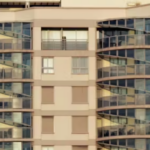| By Valeria Fernández
New America Media Feb 23, 2011 PHOENIX, Ariz. — A new set of far-reaching anti-immigrant measures passed by an Arizona State Appropriations Committee early this morning has human rights activists and health care professionals contemplating civil disobedience. The bills would deny birthright citizenship to the children of undocumented immigrants; make it a crime to drive without a license, punishable by 30 days in jail; ban undocumented students from accessing higher education; require proof of legal status to attend K-12 schools; and require hospitals to inquire about the immigration status of their patients. There are also provisions that would increase penalties for government employees who fail to report undocumented immigrants to immigration authorities if they apply for public benefits. The bulk of these proposals are contained in one omnibus bill, SB 1611, that Sen. Russell Pearce introduced at the last minute. Pearce, who is the author of the anti-immigrant law SB 1070, reportedly planning to run for Congress in 2012. SB 1611, along with other anti-immigrant legislation, was passed early this morning during a session that lasted more than 12 hours. The bills still need to clear the Senate and the House of Representatives before they reach the governor’s desk. Human rights activists called the bills “worse than SB 1070.” “It’s without a doubt miles beyond SB 1070 in terms of its potential to role back the fundamental rights of citizens and non-citizens,” said Alessandra Soler Meetze, executive director of the Arizona chapter of the American Civil Liberties Union (ACLU). SB 1070, signed into law last year, is considered one of the toughest anti-immigrant laws in the nation. It made it a state crime to be an undocumented immigrant in Arizona, but a federal judge subsequently enjoined portions of it. Meetze said SB 1611 is more problematic because it would effectively create the crime of driving as an undocumented immigrant. Currently, Arizona doesn’t grant driver’s licenses to people who are in the country illegally. “This will allow a police officer to detain somebody if he or she believes they are undocumented. Anyone (who) is perceived to be an immigrant is going to be stopped and questioned,” she said. Meetze said bill would also create a “massive government bureaucracy” by requiring government employees and agencies to routinely check people’s immigration status when they are going to the hospital, trying to enroll in school, or applying for public benefits. SB 1611 is more expansive than a law passed two years ago that sanctioned state and local employees for not reporting undocumented immigrants when applying for benefits. It also limits the types of services an undocumented person can get. Meetze said the bill is expected to face legal challenges, especially for provisions that would keep undocumented children from going to school. This runs up against the Supreme Court’s 1982 decision in Plyler v. Doe, which explicitly prohibited states from discriminating against students based on their immigration status. “It’s a police-state type of bill. It’s punishing good working people that did a lot for the state,” asserted retired physician Dr. George Pauk, the Arizona representative with the group Physicians for a National Health Program, who testified during the hearing. “The elephant in this room is the racism that is present among us,” Pauk said. Senate president Pearce drafted SB 1611 on Friday and introduced it on the deadline to get a hearing, admitting there might be some errors on the legislation that needed to be fixed. “This bill simply tightens up the laws,” he said. He argued that the legislation passed by the state has had an impact in diminishing the population of undocumented immigrants and stopping what he referred to as “an invasion” that he believes is costly for Arizona’s tax payers. “We have a war on our borders,” said Pearce, “and the federal government’s response was to post signs 30 miles from Phoenix saying, ‘Americans stay out.’” But Democratic Sen. Kyrsten Sinema argued the legislation is a remix of measures that have failed to pass in the state legislature over the last six years, and that it would open the state to more lawsuits based on their unconstitutionality. During a debate that went on for hours, she dissected several problematic aspects of SB 1611, from its impact on domestic violence victims seeking shelter to the unfairness of denying education to children who come across the border against their will. “I don’t know how we can ensure our future when we are choosing as a policy decision to deny people that are going to continue to live here an education,” said Democratic Sen. David Schapira. SB 1611 passed by a vote of 7 to 6. Opposition to it also came from some Republicans. Republican Sen. Rich Crandall, a supporter of SB 1070 and the employer sanctions law against businesses that hire illegal labor, said this legislation would hurt the economy and the state’s plan to bump up tourism at a time when Arizona has lost millions due to an economy boycott. “In this bill, every single car rental company in Arizona now has to check for citizenship before you rent a car,” he said. Legislators debated past 2:00 in the morning Wednesday. One of the final bills that was passed would require hospital personnel “to confirm a person’s citizenship or legal status during the course of admission or treatment for emergency or nonemergency care if the person cannot provide valid health insurance information.” Sen. Steve Smith, the bill’s main sponsor, said it is “unfortunate that we have people that come to this country for their last refuge. Ladies and gentleman, we can’t support the world. If we do it, there’s peril for every one of us and our children.” But health care workers from the Phoenix Urban Health Collective spoke out against the bill, saying they wouldn’t comply with a law that would essentially turn them into immigration agents. The hearing was marked by a strong presence of immigrants’ rights groups and immigrant families who filled an overflowing room to witness the proceedings. “These laws are going to scare people even more. They are going to keep pregnant immigrant women from taking care of their pregnancies,” said Pastor Magdalena Schwartz from the Disciples of the Kingdom Free Methodist Church in Mesa, Ariz. Schwartz said the bills are “murderous,” and are aimed at trying to “exterminate our Hispanic community.” Others say that whether or not the bills become law, they have succeeded in changing the conversation around immigration in Arizona. “Their strategy is to move the discussion towards the right,” said Salvador Reza, an activist from the PUENTE movement. He said it was part of a plan to “infect the rest of the country with this anti-immigrant wave.”
|
||
|











